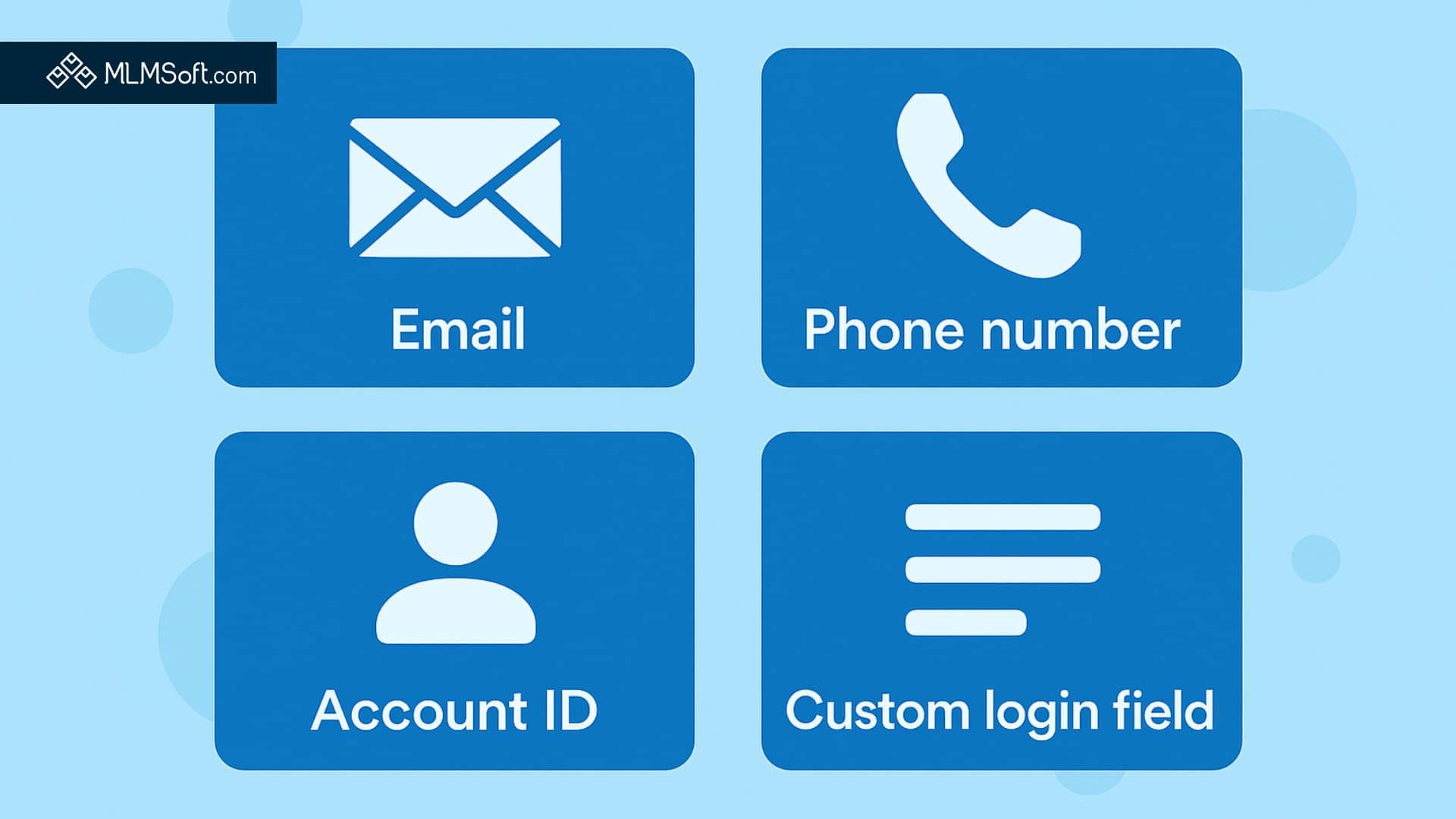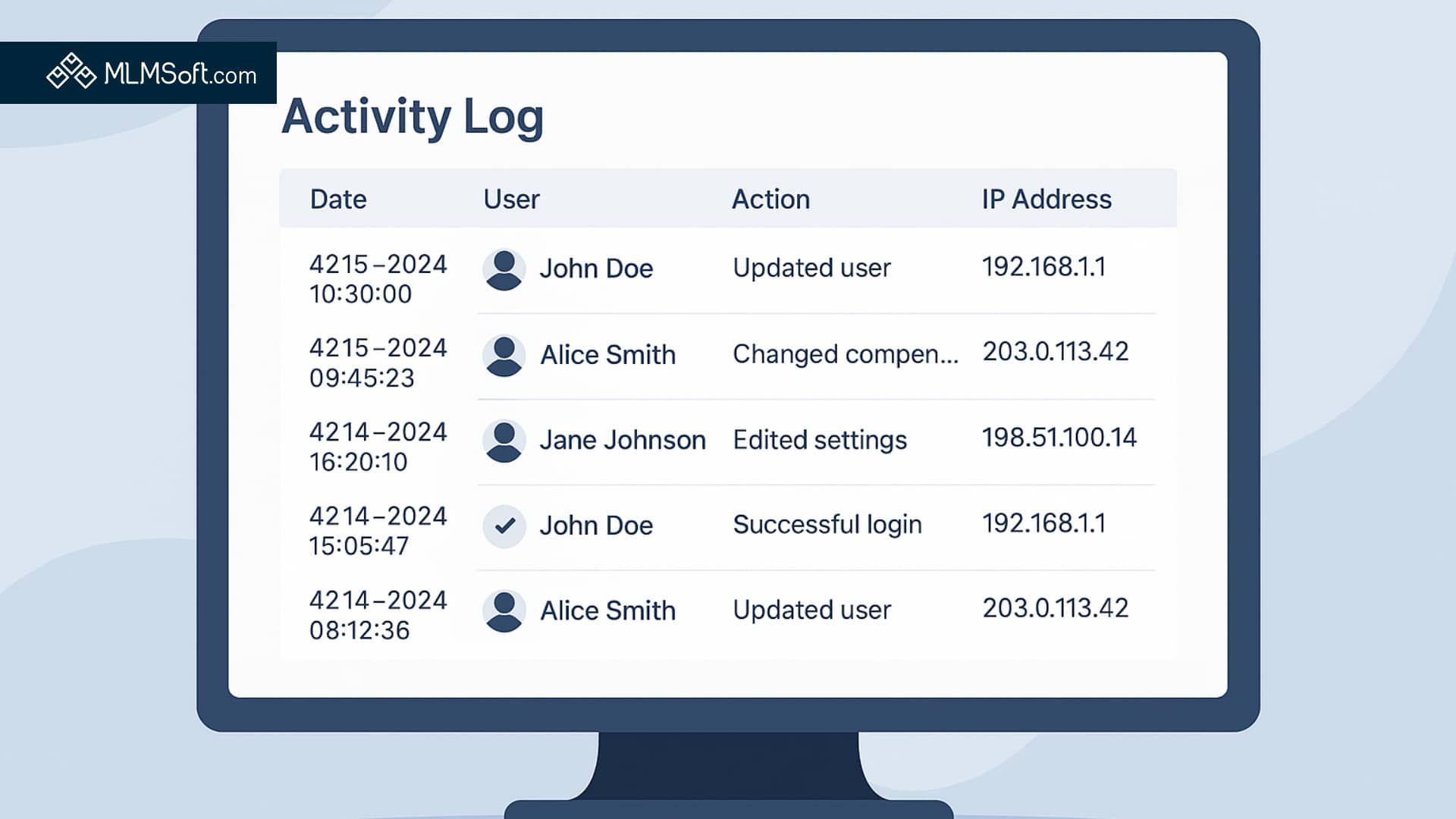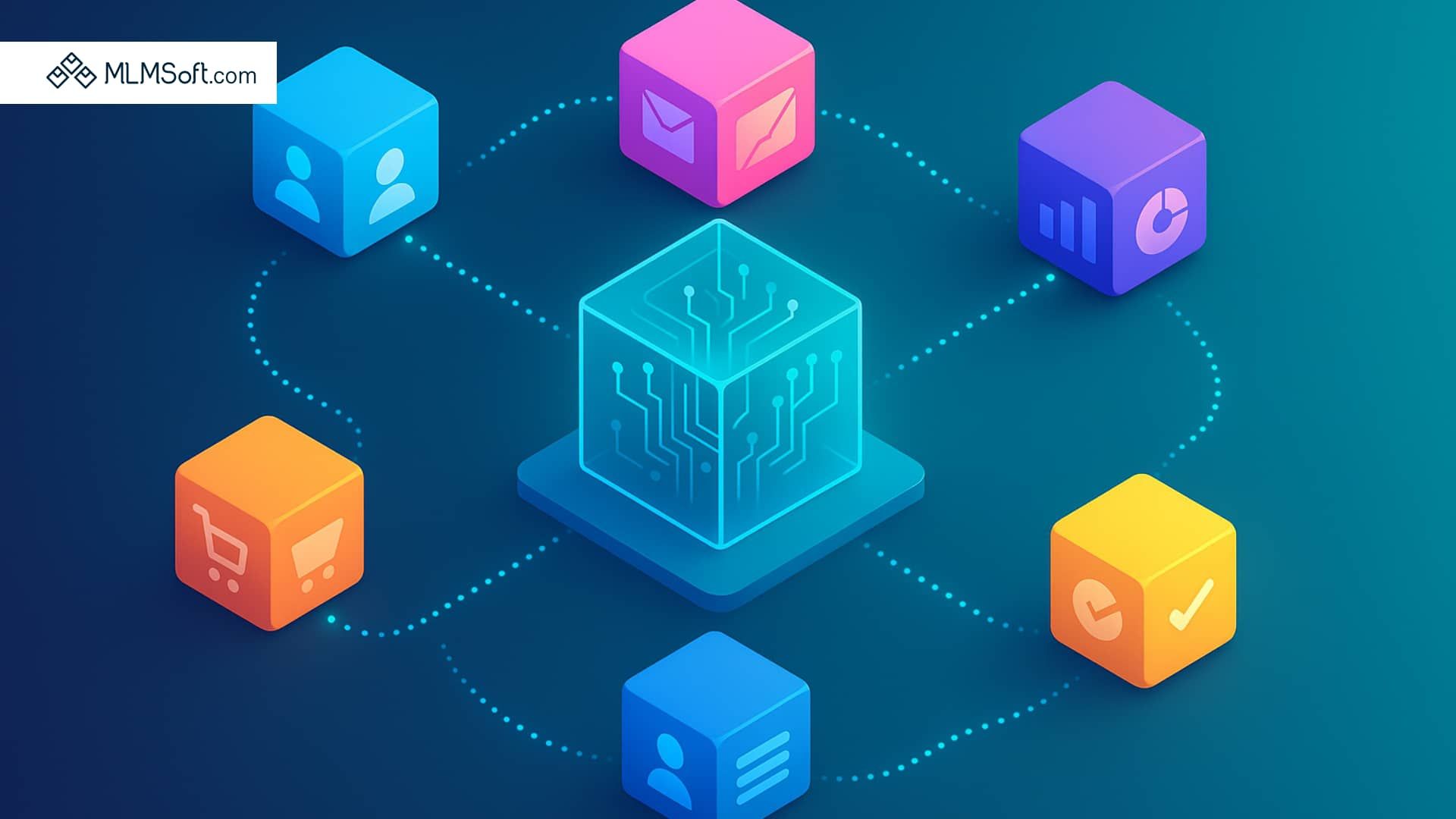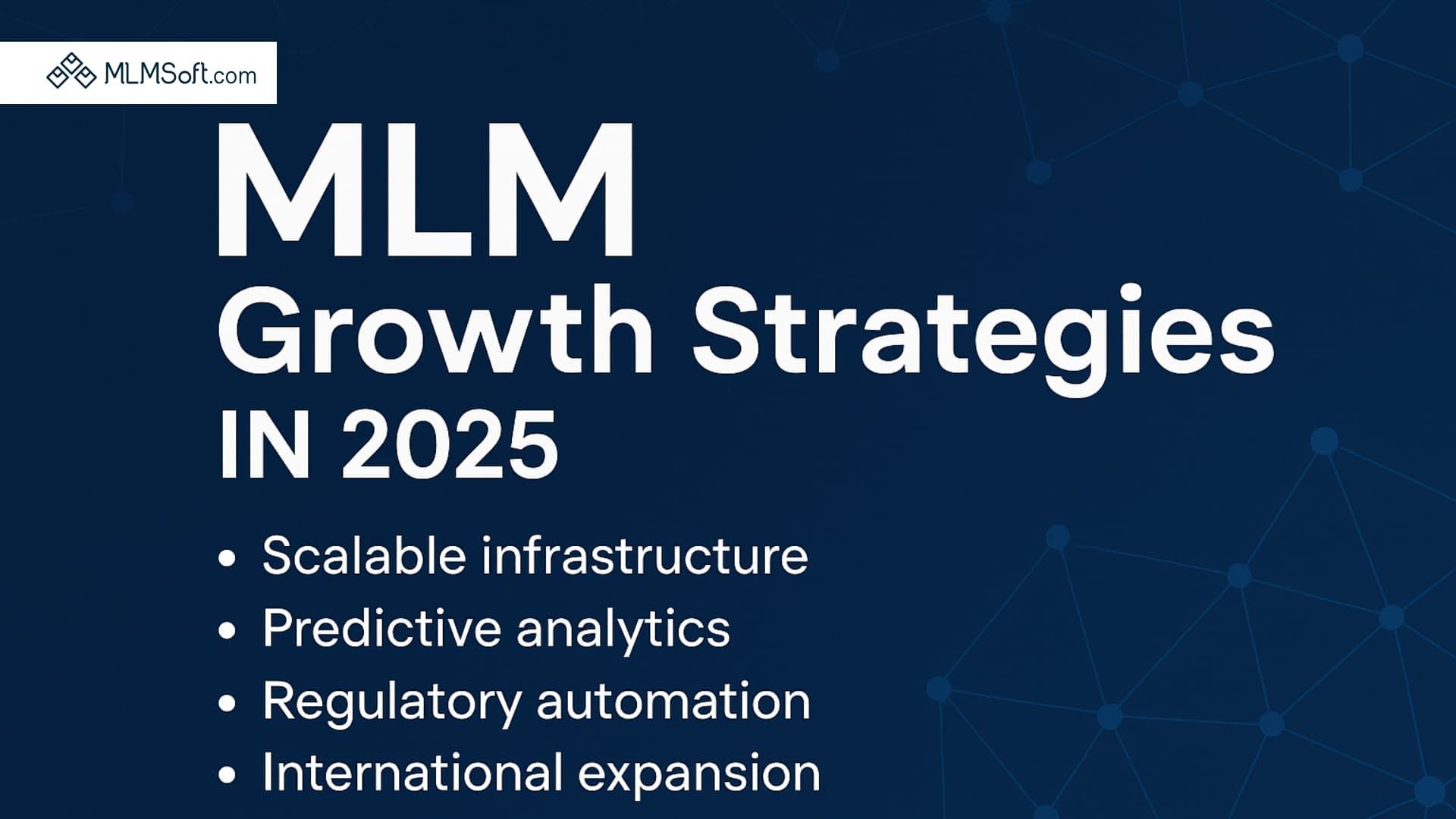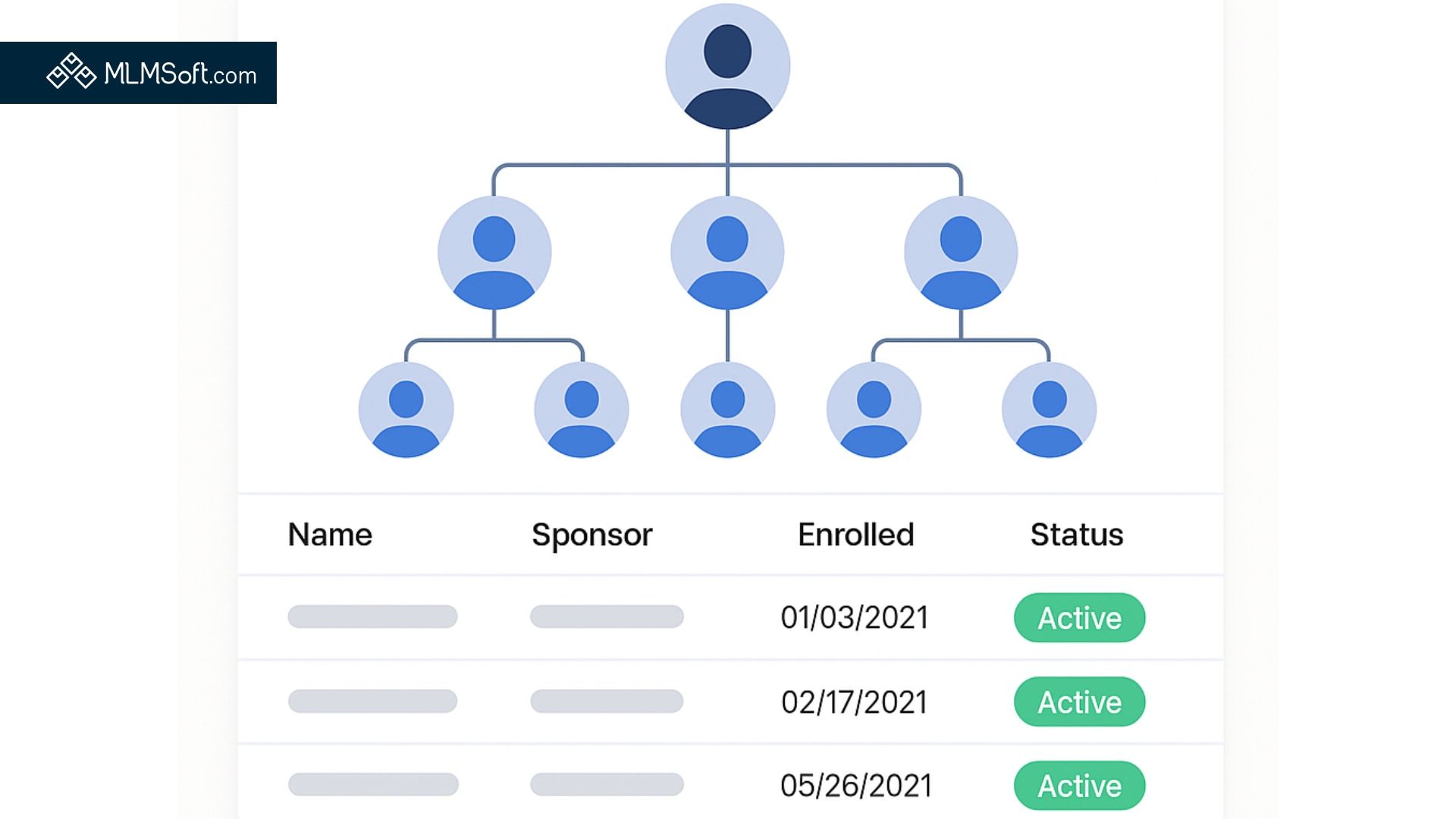What is MLM Online Marketing and How Does It Work?
Introduction to MLM Online Marketing
MLM online marketing is a powerful strategy used by multilevel marketing (MLM) companies to expand their networks and promote products through distributors. Unlike traditional retail, MLM relies on a network of independent distributors who earn income by selling products or services directly to retail customers and recruiting others into the business. This approach is designed to leverage the power of direct selling, enabling individuals to earn both personal sales commissions and a percentage of their recruits' sales. However, distinguishing between legitimate MLM practices and illegal pyramid schemes is crucial for understanding the ethics and effectiveness of this business model.
In this article, we’ll explore how MLM companies operate, the role of distributors, and how to recognize red flags like pressure sales tactics in pyramid structures.
Key Takeaways
- MLM online marketing combines direct sales with digital tools to optimize recruitment and network management.
- Distinguishing multilevel marketing companies from pyramid schemes is essential for ethical business practices.
- Leveraging tools like social media, ecommerce platforms, and MLM software drives growth and enhances distributor success.
- Research and transparency are crucial for building trust with retail customers and ensuring compliance with the business opportunity rule.
How MLM Works in Network Marketing
MLM is a modern and highly scalable approach to network marketing, where companies leverage their distributors to promote and sell actual products directly to customers. Unlike traditional retail models, MLM empowers individuals to build their own sales network by forming direct relationships with customers and recruiting new members. This recruitment process is incentivized with commissions, creating multiple levels of distributors within the network. The key distinction of this business model is its reliance on word of mouth, which serves as a powerful tool for both selling products and expanding the network.
Distributors in MLM systems act as independent salespersons, tasked with both selling products and mentoring their recruits. These recruits, referred to as the distributor’s “downline,” form the backbone of the mlm network, as they contribute to product distribution and further recruitment efforts. This layered structure allows MLM companies to grow exponentially, provided they operate within the framework of ethical and legal practices.
Distributors and Sales
One of the foundational elements of any direct sales company operating under the MLM model is the role of distributors. These individuals typically purchase inventory or starter kits from the MLM company, which enables them to begin selling products or services directly to retail customers. Unlike passive models such as affiliate marketing, where participants earn commissions for referrals, MLM distributors are deeply involved in direct sales, building relationships and fostering loyalty among their customers. This direct connection makes MLM a viable choice for those who excel in personal interactions and relationship-building.
А salesperson within an MLM might organize product demonstrations, engage customers via social media, or even use eCommerce platforms to showcase their offerings. By focusing on selling actual products, legitimate MLM companies ensure that their participants are rewarded for their efforts, rather than relying solely on recruitment. For instance, businesses seeking to scale efficiently often implement strategies outlined in scaling MLM platforms.
Recruitment
Another key aspect of MLM online marketing is its emphasis on recruitment. While product sales are a critical component, distributors are also incentivized to expand their network by recruiting new participants. These recruits then become part of the distributor’s “downline,” contributing to the network's growth.
Recruitment in MLM is tied to a financial incentive, as distributors earn a percentage of the sales made by their recruits. This not only motivates distributors to mentor their downline but also ensures that the network continues to expand. However, it’s important to note that legitimate MLM companies prioritize sales over recruitment. A healthy balance between these two components is what distinguishes ethical MLM businesses from illegal pyramid schemes.

Income Opportunities
The promise of passive income through downline sales is one of the most appealing aspects of MLM online marketing. Distributors who successfully build large networks can earn significant commissions from the collective efforts of their downline. This income potential attracts individuals with entrepreneurial mindsets who are willing to invest time and effort into growing their MLM network.
However, success in MLM is not guaranteed. Building a sustainable income stream requires a strong MLM strategy, consistent sales performance, and the ability to effectively manage and motivate a team. Without these elements, participants may struggle to achieve their financial goals.
Distinguishing MLM from Pyramid Schemes
At first glance, MLMs and pyramid schemes might seem similar, as both involve building a network of participants. However, the legitimacy of the business model depends on its primary focus. Legitimate MLMs prioritize product sales, while pyramid schemes rely on recruitment as their primary source of revenue.
MLMs: A Focus on Product Sales
Legitimate MLM companies focus on selling actual products or services to customers. The success of their distributors is tied to their ability to sell valuable products, ensuring that income is generated through legitimate business transactions. For example, companies like Amway and Herbalife are well-known MLM companies that emphasize customer engagement and product distribution. Their business models are built around the idea that satisfied customers drive revenue, not recruitment fees.
Pyramid Schemes: A Recruitment-Based Model
In contrast, pyramid schemes prioritize recruitment over product value. Participants are often required to pay large entry fees or purchase significant quantities of products that they may never sell. These schemes are unsustainable, as they rely on a constant influx of new recruits to generate income. Once recruitment slows, the entire structure collapses, leaving the majority of participants with financial losses.
For example, an illegal pyramid scheme may advertise itself as an MLM program but fail to provide clear informationabout its compensation structure or product offerings. Instead, it may lure participants with promises of high earnings through recruitment alone. These red flags are critical to identifying fraudulent schemes and protecting yourself from financial harm.
The Role of MLM Software in Modern Businesses
Modern MLM systems rely heavily on technology to manage networks, track commissions, and ensure transparency. MLM software enables companies to:
- Automate commission calculations and payouts.
- Provide insights into sales performance and revenue trends.
- Enhance distributor experience through seamless online business tools.
For more insights on automating MLM operations, explore our case study on Scaling Beyond Limits: Optimizing MLMSoft’s Platform.
The Importance of Legitimacy
The legitimacy of an MLM company can often be determined by its focus on products and transparency in operations. Ethical MLM businesses invest in creating valuable products and supporting their distributors with training and resources. Additionally, legitimate companies ensure compliance with regulations, such as those set by the Federal Trade Commission, to protect both distributors and customers.
To succeed in MLM online marketing, participants must adopt a strategic approach that combines effective direct salestechniques with a strong online presence. Here are some essential elements to consider:
- Word of Mouth Marketing
Building trust and credibility through word of mouth is a powerful strategy in MLM online marketing. Distributors can leverage personal relationships to promote their products and recruit new members, creating a sense of authenticity that resonates with potential customers. - Search Results Optimization
Optimizing content for search results can significantly enhance your online visibility. By using targeted keywords and creating high-quality content, distributors can attract a broader audience to their products and services. - Focus on Actual Products
The foundation of any successful MLM business is its actual products. Ensuring that the products are high-quality and meet customer needs is essential for building a loyal customer base and maintaining the legitimacy of the business. - Company and Words That Build Trust
The reputation of the MLM company plays a significant role in the success of its distributors. Transparent communication and ethical practices are critical for building trust among both distributors and customers.Examples of MLM Companies: Industry Leaders Setting the Standard
The MLM industry has seen the rise of several prominent companies that have successfully demonstrated the potential of ethical and sustainable multilevel marketing. By focusing on quality products, transparent practices, and building trust with their customers and distributors, these companies have carved out a strong reputation in the global market. Here’s a closer look at two of the most recognized MLM companies:
Amway: A Pioneer in Direct Sales and Multilevel Marketing
Amway is one of the most successful and well-known direct sales companies, offering a wide range of health, beauty, and home care products. Founded in 1959, Amway operates in over 100 countries and territories, generating billions in annual revenue. The company’s focus on high-quality products and a robust MLM network has made it a global leader in the industry.
Key elements of Amway’s success include:
- Diverse Product Range: From nutritional supplements to environmentally friendly cleaning solutions, Amway provides actual products that cater to various customer needs. This focus on tangible, high-quality goods has helped the company maintain customer loyalty.
- Distributor Support: Amway equips its distributors with training, tools, and resources to enhance their sales performance and grow their networks. This focus on empowering participants has contributed to its long-standing reputation.
- Word of Mouth Marketing: By leveraging personal relationships and recommendations, Amway distributors have built a strong sales network that thrives on trust and authenticity.
Amway’s commitment to ethical practices and legitimacy ensures that participants focus on building their business through direct sales rather than recruitment alone.
Herbalife: Nutrition and Wellness with a Focus on Transparency
Herbalife, founded in 1980, is a leading MLM company in the nutrition and wellness industry. Specializing in weight management, health supplements, and personal care products, Herbalife has created a global presence through its extensive MLM network of distributors.
What sets Herbalife apart is its dedication to transparency and customer satisfaction:
- Income Disclosure Statements: Herbalife provides detailed income disclosure statements, allowing potential participants to understand the realistic earning potential of becoming a distributor. This transparency is crucial for maintaining the legitimacy of their business model.
- Customer-Centric Approach: Herbalife emphasizes the importance of customer satisfaction by offering money-back guarantees and ensuring that distributors prioritize product sales over recruitment.
- Direct Sales Model: Distributors are encouraged to actively sell Herbalife products to retail customers, fostering a direct connection with the consumer market. This helps Herbalife maintain its focus on actual products rather than solely relying on network expansion.
Herbalife has faced scrutiny and legal challenges in the past, but its efforts to align with ethical business practices and regulatory standards have solidified its position as a leader in the MLM industry.Why These Companies Set the Standard
Both Amway and Herbalife exemplify how multilevel marketing can succeed when built on a foundation of trust, ethical practices, and high-quality products or services. These companies focus on empowering their salespersons to build genuine connections with customers and prioritize direct sales as a core component of their business models. By doing so, they have avoided the pitfalls of pyramid schemes and established themselves as benchmarks for the MLM industry.

Red Flags to Avoid in MLM Programs: Protect Yourself from Scams
When considering joining an MLM program, it's crucial to be vigilant and identify warning signs that could indicate unethical practices or pyramid schemes. While many multilevel marketing programs operate legally, some exploit participants through deceptive methods. The Federal Trade Commission (FTC) has outlined several red flags to watch out for when evaluating an MLM opportunity. Let’s take a closer look at these warning signs and how they may reveal a potential MLM pyramid or scam.
Pressure Sales Tactics: A Clear Red Flag
Legitimate MLM programs focus on educating participants about their products or services and providing a transparent explanation of the business model. However, scams often employ pressure sales tactics, pushing people to join the program without giving them enough time or information to evaluate the opportunity.
Red flags associated with pressure sales tactics include:
- Aggressive Recruitment: Programs that emphasize recruiting new participants above all else, with little to no focus on product sales, may be disguising a pyramid scheme. If you're unsure about the difference, check out our guide on how to spot pyramid schemes.
- Urgency to Join: Be wary of companies that pressure you to make a decision immediately, claiming that the "opportunity will be lost" if you don’t act quickly. Ethical MLM companies will provide ample time to review their offerings and ask questions.
- Lack of Transparency: If the recruiter avoids answering questions about costs, compensation plans, or the company’s track record, it’s a major red flag.
Ethical MLM companies prioritize building trust with potential participants, giving them the space to make informed decisions. If a program relies on high-pressure tactics, it’s better to walk away.
Extraordinary Claims: "Too Much Money" with Minimal Effort
Another common warning sign of unethical MLM programs is the promise of earning “unlimited income” or “getting rich quickly” with little effort. These extraordinary claims are often designed to lure in participants who may not fully understand the realities of MLM businesses.
Key signs of extraordinary claims include:
- Guaranteed Wealth: Any MLM that guarantees you’ll make too much money or promises passive income without significant work is likely misleading. In legitimate MLM programs, success requires dedication, sales efforts, and effective recruitment strategies.
- Minimal Investment, Maximum Returns: Be cautious if an MLM promises high returns on a small initial investment. This is often a tactic used by scams to attract participants while masking their actual costs. Learn about scaling MLM platforms to handle revenue ethically in our article on MLM software optimization.
- Focus on Recruitment Income: Scams often claim that recruiting others is the only way to make substantial money. Legitimate MLM programs, however, derive income primarily from product sales, not recruitment alone.
When evaluating income claims, look for an income disclosure statement that provides realistic data about what participants at various levels earn. Companies like Herbalife and Amway are examples of businesses that emphasize transparency about earnings.
Lack of Retail Sales: The Foundation of Legitimate MLMs
One of the defining characteristics of a legitimate MLM business is its focus on retail sales to customers outside of the network. Programs that lack this focus may be operating as pyramid schemes, relying solely on internal consumption or recruitment to generate revenue.
Key red flags indicating a lack of retail sales include:
- No Customer Base: If an MLM program doesn’t prioritize building a customer base or encourages participants to buy products only for personal use, it’s a major warning sign.
- Internal Consumption Focus: Programs that rely heavily on participants purchasing products to qualify for commissions or bonuses may not be sustainable. This practice often creates an illusion of sales while burdening participants with unsold inventory. Learn more about effective MLM tools for managing retail sales in our post on unilevel MLM software.
- Recruitment-Driven Revenue: If the primary way to earn income is by recruiting others, rather than selling products to retail customers, the program may be a pyramid scheme.
Legitimate MLM programs encourage distributors to focus on selling actual products to customers outside the network. This ensures that the business model is sustainable and not dependent on a constant influx of new recruits.

How to Protect Yourself: Tips for Evaluating MLM Programs
To avoid falling victim to scams or unethical MLM programs, follow these steps:
- Do Your Research: Investigate the company’s reputation, track record, and compliance with regulatory standards. Look for reviews and testimonials from current and former participants. You can also explore how MLM programs function ethically in our guide on MLM and pyramid scheme differences.
- Ask for Documentation: Request detailed information about the company’s compensation plan, income disclosure statements, and sales practices. A legitimate direct sales company will provide this information willingly.
- Focus on Products: Ensure the company has high-quality actual products that appeal to customers. If the emphasis is solely on recruitment, it’s a red flag.
- Check FTC Guidance: Familiarize yourself with regulatory guidelines, such as those provided by the Federal Trade Commission, to identify potential scams.
Whether you’re new to MLM marketing or looking to scale your mlm business, embracing the right strategies and tools is essential. Legitimate multilevel marketing plans focus on delivering value through product sales, ethical recruitment practices, and strong leadership.
To learn how to optimize your network and grow your revenue, schedule a demo with MLM Soft today. Let’s take your MLM strategy to the next level!
Interested in Professional MLM Software? Book Free Demo with an Expert!
MLM Soft Cloud Platform is a modern high-performance software to run any multi-level or referral marketing business. Our platform is used by traditional MLM companies in health&beauty segment, as well as other industries using multi-level and/or affiliate marketing to boost their sales: infobusiness, education, real-estate, consulting, crypto, trading, etc.
Discover how we can build a customized solution for your business on MLM Soft Cloud Platform during a demo-call with one of our experts.

